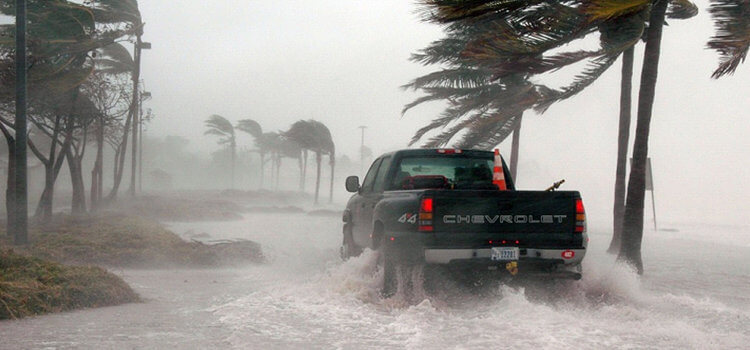Hurricane season has officially arrived, and many parts of the country will be hit by severe tornados, storms, flooding, and hurricanes, especially in Florida. Although preparing for an emergency may feel overwhelming, your safety and the safety of your loved ones are most important during an emergency.
There are two aspects to consider when preparing for severe weather. First is safety planning for your family. Next is financial readiness which includes protecting your physical property, such as your home or your vehicle. By using a proactive approach, you will be better prepared for any financial storms that often accompany hurricane season. Below are some crucial tips that every Florida resident should learn and do!
Safety Planning for your Family
- Emergency Kit – In the event that you may have to wait for several days before assistance arrives, be prepared to have enough food, water and basic supplies for an emergency.
- Find Shelter – Basements, first floors and under the stairs are the perfect places to wait out a storm.
- Evacuation Routes – It is important to be informed, either online or through the media, about the available secure evacuation routes.
Protecting your Home and Personal Property
- Elevation Level of your Property – If your property is at ground level you can put sand sacks in front of your doors to prevent flood damage.
- Board Up your Windows – Shutters are the best protection for doors and windows. Alternatively, boarding up your windows also mitigates damage.
- Safe Place for your Car – In case you need to evacuate, taking your car is the best option. If that is not feasible, park your car indoors to prevent falling debris from causing damage and try to park on higher ground.
- Fuel up your Car – Ensure that your car is fueled-up ahead of time. In the event of a power outage, gas stations are going to be closed.
Financial Preparedness
- Flood-Proof Important Papers and Documents – There are a few ways to safeguard important files and legal or financial documents. The first step is to make electronic scans of them on the computer. Next, you should backup those electronic files in a cloud-based system, such as Dropbox or Google Drive. In case your computer crashes, the cloud will live on with your documents. For original documents you want to preserve, such as a Last Will & Testament, Trust Agreements, and other estate planning documents, store them in a water-proof plastic Ziploc bag.
- Have Electronic Access to your Financial Institutions – Setting up electronic accounts, rather than relying on the U.S. postal service, will give you instant access to your bank accounts, social security benefits, mortgage lender, credit card companies, etc. You will be able to log in and instantly see your available funds, statements, and do things like deposit a check or pay a bill.
- Keep Cash Handy – Banks and ATMs may be unavailable once a storm hits due to loss of electricity, flooding, or simply closing down the branch to ensure the safety of staff and clients. Cash is king and continues to be accepted by most venues during times of emergency.
- Doublecheck your Insurance Coverage – Review the fine writing in your policy regarding home and property damage. Make sure to ask: If your home is damaged, what is your deductible? If you must live at a hotel, how much of your hotel bill will be reimbursed by the “use of loss” coverage. If your home needs repairs, are you forced to use the contractors your insurance company provides, or can you select your own repair crews?
Having both safety and financial preparedness strategies in place will start the recovery process sooner rather than later. Contact OC Estate & Elder Law at (954) 251-0332 or info@ocestatelawyers.com for a thorough consultation regarding financial planning or estate planning to ensure peace of mind for you and your family.

